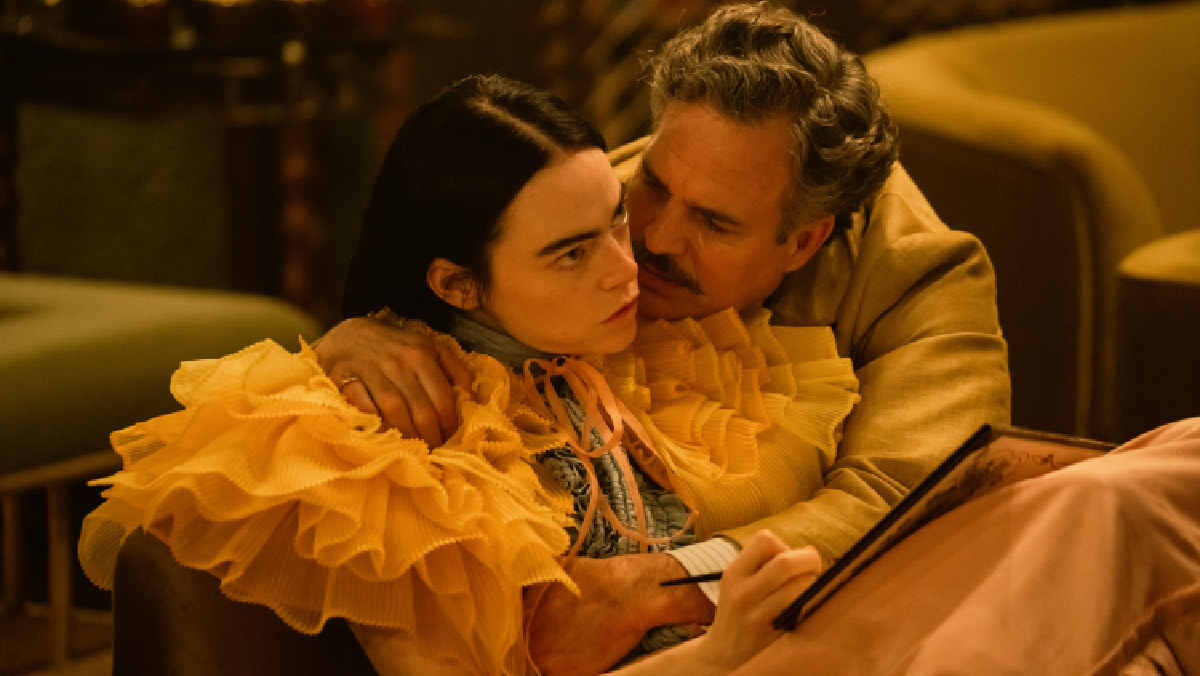“Poor Things,” a masterpiece directed by Yorgos Lantimos and released Dec. 8, is inspired by the Alasdair Gray novel of the same name and is one of the most funky, refreshing movies to be made this decade. In an era of continuous biopics and stereotypically “relatable” characters taking center stage, witnessing a story full of characters that audiences can understand and resonate with is inspiring and monotony-breaking.
The film’s star, Bella Baxter (Emma Stone), is a woman who finds herself with a fresh start and new life after falling onto an unorthodox path. Initially, pseudo-father “creator” Dr. Godwin Baxter (Willem Dafoe) helps raise her, in a twisted sort of way, but by the end of the film, Baxter is her own person, full of desire, questions and dreams. The 141-minute movie drags for the first 20 minutes, but as the story progresses and secrets unveil themselves, the majority of the film feels worthwhile enough that one forgets about the slow pacing.
Every element of the film was meticulously utilized to enhance the audience’s viewing experience. The ultra-hyper, colorful and subversive world design of the film juxtapose and heighten the sometimes gruesome reality that the protagonist faces. The differing lenses and techniques brings the movie to life; the film is built from a large array of wide and intense, close-up shots with a variety of movement in each shot. The music composed by Jerskin Fendrix is wonky in the most effective way that supports the world that Lantimos attempts to build. Blaring basses, unique instrumentation and pulsing beats bless the audience throughout the movie. The glaring aesthetics allow the viewer to be as uncomfortable as some of the dilemmas in the film demand people to be, for the sake of introspection and storytelling.
Stone and Dafoe play well off of each other, highlighting the love between a father and daughter and the realities of inflicting generational trauma on one’s child. Stone as the starring character is captivating and alluring. Another character quintessential to Baxter’s journey is Duncan Wedderburn (Mark Ruffalo), a charming, but manipulative lawyer and love interest to Baxter, who perfectly captures the balance of necessary discomfort, charm and comedy. A smaller, subtle performance both in terms of acting and writing was Harry Astley (Jerrod Carmichael), who is in some of the film’s most thought-provoking and emotionally compelling scenes.
Fundamentally, the story, despite its miniscule flaws, feels well-earned and heartfelt. All parties involved in “Poor Things”’s creation evidently cared about the themes of the story. The story is brave in letting the audience ponder the ethics of what’s happening and allows the audience to feel unsettled. Lantimos’s distinct directing style and the immaculate performances by the actors help to mold the most memorable films in movie history. “Poor Things” is a bold movie that not everyone will vibe with, but the story doesn’t dull itself in any capacity to make the audience more self-assured — a feat that renders the film impeccable.




















